- Home
- Johnny D. Boggs
A Thousand Texas Longhorns Page 8
A Thousand Texas Longhorns Read online
Page 8
“And what would you pay for a steak?”
“You mean a beefsteak that didn’t come from an ox that broke its leg and got butchered by a freighter or neighbor?” He laughed. “Top dollar, man. Top dollar.”
“Well, Foster, that’s good to know.” Story started figuring how many head the three cattle yards would hold, how much Foster and Culver would really charge him, and how much he could charge to sell steers to Mr. Star, or Mr. Rock-fellow’s store on Jackson Street, and every restaurant in the Fourteen Mile City.
The man slapped his livery apron. “You really think you could get cattle here, Story?”
“If there’s profit in it,” he answered.
“Story, you’re a wonder. But are you a betting man?”
“Only on sure things.”
“What I figured. See, I was thinking about betting that you won’t have beef to sell in Virginia City by the end of next year.”
“How much?”
The liveryman blinked. “Well, five hundred dollars?”
“Double it.” He held out his hand.
Foster’s Adam’s apple bobbed. “I mean, more than one steer. Real cattle. Not an ox. And not something you brung in from Fort Hall.”
“I’ll make it specific. A Texas longhorn.”
The Adam’s apple stopped moving. Foster rubbed his palms on the apron. “No, no, not for a thousand dollars. One longhorn. Some dern fool might bring one up on a boat.”
“Minimum of twenty. Driven by me right down Wallace Street.” Story’s right hand had not moved once during the conversation.
Foster chuckled. “Story, it’s a pleasure doing business with you.”
* * *
Sitting in the Concord, waiting for the jehu to get the mules moving, Story thought about that conversation. And what Ellen would say if she learned he had bet a thousand dollars that he could get a herd of cattle up here before the start of 1867, a little more than a year. He was already out $350 for the price of a ticket on Ben Holladay’s stagecoaches that would take him as far as Atchison, Kansas. That included up to twenty-five pounds of luggage—for Story, two grips stored in the coach’s rear boot—but not the strongbox on the floor. No way in hell, Nat Stein had told him at the station, would Holladay insure or be responsible for any gold bullion, dust, or notes from either a bank or the Treasury. Stein said they’d store the box up top. Over my dead body, Story had countered. After all, Stein had already assured Story that this strongbox was Story’s responsibility, not the Benjamin Holladay Stage’s.
Three of the four male passengers stared at the padlocked box on the floor of the Concord. Story didn’t figure his boots, resting atop the iron box, interested the men. The box didn’t, either. They wondered what would be inside such a box. The fourth man looked at the woman by the window, but Story knew the banker, and the banker already knew what was in the box. The woman focused her attention on the crack in the leather curtain, probably to avoid cigar smoke fogging the coach’s interior. The banker smoked the cigar.
Story stared ahead, his arms folded, the pair of holstered Navy .36s in plain view.
He exhaled with satisfaction as the jehu called down, released the brake, and lashed out at the mules. The Concord pulled forward. Everybody moved. The strongbox didn’t.
Bannack City, Boise, Salt Lake City. That would be the first leg. In Salt Lake, he would take another Holladay stage. Once in Atchison, he could cross the Missouri River to Winthrop, then ride the Hannibal & St. Joseph Railroad east and start making his way to New York. It was, he understood, a long way to carry a box containing 140 pounds of gold. At the going rate of $18.93 a troy ounce, that would total better than $40,000.
Almost as soon as the coach had started rolling, it slowed to a stop, and the driver called out, “That’s a good way to get run over, boy.”
“I need to speak with one of your passengers.”
Swearing, the banker tossed his cigar out of the window.
“You best write a letter, boy, because I got a schedule to keep. Out of my way, or you’ll be tastin’ Habakkuk’s and Zephaniah’s hooves.”
“Then I’ll ride with you.”
“Not without payin’.”
“Here.”
The woman sighed in irritation. The man closest to the door swore, then removed his hat and apologized to the woman. Story kept listening.
“Bub, as puny as this poke is, you won’t get no further than the first station before Bannack City.”
“That’s fine with me.”
“Get in, and be quick.”
The coach was already moving, the door banging open, and a man in a black hat and greatcoat the color of a good Madeira gripped the sides and swung up, tried to pull himself in. The coach turned sharply to the road toward Nevada City. Story figured the man would fall out then, but only his hat rolled off, and that fell to the floor and stopped beside the strongbox at Story’s feet.
One of the men yawned. The other grinned. The banker ignored the dark-headed man as he tried to pull himself inside.
“Won’t someone help this wayfarer before he breaks his neck?” the woman said softly.
Outside from the driver’s box, the jehu cursed, snapped his whip.
Story considered helping the man, but the one closest to the door reached over, grabbed the tawny coat, and jerked the man inside. The wayfarer fell with a thud, gasped, pushed himself into a seated position on the floor, and found his hat. He nodded at the woman, turned to thank the man who had jerked him inside the coach, while the banker mumbled something underneath his breath, before leaning over and slamming the door shut.
The newcomer started to get up, to find a seat, but before he could inch his way up, Nelson Story reached across his body with his right hand to draw the Navy Colt on his left hip from the holster. He thumbed back the hammer and aimed the long barrel at the young man’s nose.
CHAPTER FOURTEEN
“Speak your piece.”
Mason Boone looked above the barrel of the revolver and at the man holding it.
The woman gasped.
“Nelson,” said a well-dressed gentleman by the window. “How do you know this stranger desires an interview with you?”
The Navy’s barrel waved just a bit.
“That gash atop your head gave you away.” Story’s smile revealed no mirth. “Next time, buy a hat that fits tight.”
The stage slid in the snow, and everyone lurched to the other side of the Concord before it straightened.
“Well,” Story demanded.
Straightening and lowering the dainty handkerchief, the woman came to Boone’s rescue. “Sir, this man has paid his fare and appears to be unarmed. Surely you remember your Bible, sir. This horrible country may be without law, but it is not without God.”
“I’m well aware of the Golden Rule, ma’am.” Neither the Navy nor Story’s eyes wavered. “Do unto others, but do it first.”
Gasping, the woman quickly paled and bounced up and down when the coach’s right-front wheel hit a rock of substantial size.
When the coach stopped swinging on its thorough braces, Boone still found himself staring down a revolver barrel.
Hell’s fire, Boone thought, this is what I get for trying to be a Good Samaritan. About to get my brains splattered across a stage being driven by a crazy old fart, and even if I don’t get murdered, I’ll have a long walk in the bitter cold from the swing station to wherever I wind up.
“This stagecoach is going to be robbed,” Boone said.
“Not by you,” Story told him.
“I came to warn you,” Boone said.
“Why not warn the driver? Or Nat Stein at the station? Why wait till we’re leaving town?”
“Because the men who plan to rob the coach also plan to kill you.”
Something flickered in Story’s eyes, but the gun remained steady.
“And you know this because . . . ?”
“I slept in a loft at a livery last night, maybe early this morning. They wer
e downstairs—”
“Who?”
Boone started to answer, but the banker cut him off. “Christ’s sake, Story, he was in the loft. He couldn’t have seen them, in the dark. And I haven’t seen this gent in town.”
“You might have,” Story answered. “I wouldn’t have recognized him if not for the split I put in his skull. How’d you get cleaned up? Roll a drunk? Rob a store?”
“They were friends of the McGee brothers,” Boone answered.
Story’s eyes narrowed, and he nodded.
“Which livery?” the man asked.
Boone had to think. “Brill,” he said.
“That figures,” one of the male passengers said. “That crazy old coot isn’t particular about who he lets put a horse in one of his filthy stalls.”
“They’re not filthy now,” Boone said.
That caused something else to shine in Story’s eyes. The hammer clicked, then lowered as Story brought up the Colt’s barrel and rested it on his thigh.
“Where’s the robbery to occur?” he asked.
“The leader didn’t say.”
“It could be a ruse, Story,” the banker said. “He gets inside, so they have someone inside the coach.”
“How many road agents have you known to pull something like that?” one of the other men said, as he reached inside his coat and withdrew a hideaway gun. “If it’s one of the old McGee gang, they’d hit us at the slide rock—like every other bandit who has held up one of our stages.”
“My goodness,” the woman said.
Story looked at Boone.
“You fight in the war?” Story asked.
Boone nodded.
“North or South?”
“Texas.”
“Which regiment?” the gent with the hideaway gun asked.
“Tenth Cavalry.”
“Hood’s Brigade?” the man asked.
“No. We were assigned to Ector.”
Now the hideaway gun pointed at Boone’s left eyeball as the man told Story: “He’s a liar. I was an adjutant in the 7th Texas Infantry under John Gregg. He took over the brigade after Hood got shot all to hell at Chickamauga. The 10th got transferred to our brigade after Atlanta.”
Hell, Boone thought, even when I tell the truth I get guns stuck in my face. Story was considering him, but his revolver remained pointed at the coach’s door. “I wouldn’t know about that,” Boone said. “I quit after Kennesaw Mountain.”
The man with the hideaway pistol leaned back, and his face began to redden. “You . . . deserted . . .?” He raised the hideaway gun to drive the butt deeper into the gash Story’s Navy had carved, but his colleague grabbed the man’s arm, while Story’s Navy began to move in the general direction of Gregg’s former adjutant.
“Hell, Billy Ray,” the man’s partner said, “I wish to hell I had flown the coop after Sharpsburg.”
A calmness settled over the coach. The woman managed to whisper, “Should not we warn the driver and guard?”
“We got a ways before we get to the slide rock, ma’am,” Story said.
“But what if they decide to ambush us before we reach the slide rock?” the banker asked.
“They won’t,” Story said. “If they rode with the McGees, intelligence and ingenuity are not in their makeup.”
Boone decided to ask a question. “What did you do during the war?”
Story said, “Taught school some.”
Billy Ray’s partner laughed. “Not in Texas, from how you talk.”
“Ohio,” Story said. “Kansas.”
“I hear Kansas was bloodier than Franklin, Tennessee,” the levelheaded friend of the one with the hideaway gun said.
“I have no interest in politics or history.” Story leaned closer to Boone. “Why do you want to help me? That’s the puzzlement I have. If I got my head split open, I’d want revenge.”
“I’ll give it back to you with interest.” Boone didn’t mean to spit out the words with such anger, but could not stop himself. Hell, now he wished he had never deserted the Cause. He could have avoided that long hard journey from Georgia to Montana, could be cracking pecans and sipping corn liquor back home in Tyler. “But . . .”
Story waited for the answer Boone could not give. But ... your wife . . .
“A few more questions,” Story said, and the Navy began moving back toward Boone’s face. “I ran errands all day. You could’ve tracked me down long before I got on this stage. What took you so long to warn me?”
“I was busy,” Boone said. “Haircut. Shave. Dinner. Duds. It took me a while to decide maybe your life was worth saving.”
“That sounds honest. But I didn’t buy my ticket from Nat Stein till today. How’d you . . . and how did McGee’s morons know I was leaving town this afternoon?”
Boone wasn’t about to mention his visit with Ellen Story, although part of him thought Story might like to know his wife was sick. No, that would take too much explaining, and Story did not like long explanations. Besides, Story’s question had given him an alternative to the truth.
“I saw one of the men from the barn on a horse kicking up mud down the road. Then I asked . . .” He took a chance. “. . . the newspaperman where you were. So I ran down here and stopped the stage.”
“Convenient.” The Navy cocked again, and the barrel moved to Boone’s nose. “But you said you didn’t recognize the boys who were talking about killing me while you were spying on them in the loft.”
“I didn’t recognize him from the loft.” Mason Boone had never thought so fast, but a .36 caliber revolver six inches from one’s head made a man a real quick thinker. “I recognized him from the hanging the other day.”
Story raised the barrel slightly and told the banker, “Holler up and have them stop this coach.”
When the banker complied, the jehu shouted back, “Piss up a rope. I got a schedule.”
The Navy roared in Story’s hand, filling the coach with white powder, and punching a hole in the roof.
“Halloran,” Story thundered above the driver’s and messenger’s yells, “you stop this rig right now or the next ball goes up your asshole.”
CHAPTER FIFTEEN
“You’re chickenshit,” Story told the jehu.
“And you’re a hard-ass,” Halloran fired back, “but I’m a livin’ chickenshit, and I intend to go on livin’ as long as I can. So I ain’t drivin’ myself up to slide rock. Been held up enough times by road agents. Don’t aim to get kilt if I can help it.”
“Then I’ll drive,” Story said.
“They’ll recognize you,” the banker pointed out.
Story frowned at the banker. “I take it you’ll wait here, too?”
The banker smiled. “Someone has to protect this lady from New Hampshire.”
“How about you two?”
The two other men glanced at each other and climbed into the Concord, and Story turned to the messenger, who spit out tobacco juice, grimly nodded, and moved to climb back into the driver’s box.
“Frank,” Story said.
The messenger turned around.
“I’d rather you stayed here.”
The old man frowned. “Why?”
“I’d feel better if someone protected this lady from Mr. Saunders.”
The banker started to puff up, but quickly deflated and forced a theatrical smile.
“They’ll be expecting someone to ride shotgun,” the messenger said.
Which is when Story turned to Mason Boone. “Yeah. They will.”
With a sigh, Boone shed his new greatcoat, gave it to the woman to hold, while the guard named Frank handed his double-barrel shotgun to the driver and removed his buffalo-skin coat. Next, they swapped hats. The messenger’s was too small for Boone, but he used his woolen scarf and tied it over his head, bringing down the worn, ripped, and stained sides to cover his ears. That might disguise his face enough.
“Chaw?” The messenger held out his plug.
“I’ll pass, but thank you,” B
oone told him.
“Don’t got the habit?”
Boone chuckled. “I like a good chaw—just not when I’m getting shot at.”
Frank laughed. “Smart fellow.”
“Not too smart,” Story said as he pulled on the jehu’s tan coat. “He’s riding up there with me.”
Boone put a foot on the front wheel’s hub and began his climb into the box. Once seated, he reached over and took the shotgun from the messenger. “You got two barrels of buckshot,” Frank told him. “Make ’em count.” The answer was a silent nod. Frank carried a pistol in a holster, but did not offer it to Boone.
Story came up next, found the lines, and looked down at Halloran.
“We’ll get back here as soon as we can,” he said. “I’d get a fire going in that depression. Keep you warm.”
“Try not to get my hat shot off your head, Story. It looks ridiculous on you. And you better bring my rig and my mules back here, real quick,” the jehu said. “I got a schedule to keep.”
“You haven’t been on time once in eighteen months,” Story told him, and called into the coach. “You two ready?”
One of them answered with a rebel yell that made Boone smile ever so slightly. Then he pulled up the woolen muffler Frank had handed him and drew in a deep breath. A moment later, Nelson Story brought the jehu’s bandanna up over his mouth and nose, released the brake, and whipped the lines. The four mules began pulling the Concord up the track.
To Boone’s surprise, Story knew how to handle a team, and the stagecoach moved faster up the hill. Story’s Navy Colts lay on the bench, on either side of him. Extra cylinders, fully capped, rested beside the revolvers, for quicker reloads.
“We’re making good time,” Boone said, just to say something. His stomach roiled, his heart pounded, his throat turned raw, and the palms of his hands sweated inside his gloves.
“Because we’re a hundred forty pounds lighter,” Story said. It was much more than that, but now Boone understood why Story had left the messenger behind. Story had dragged the strongbox off the coach. Plummer with the Goatee and the other highwaymen might wind up killing Story, Boone, and the two men inside. But they wouldn’t get Story’s gold.

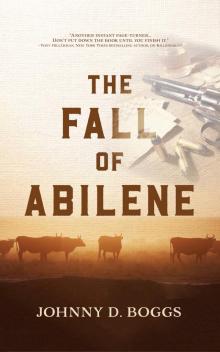 The Fall of Abilene
The Fall of Abilene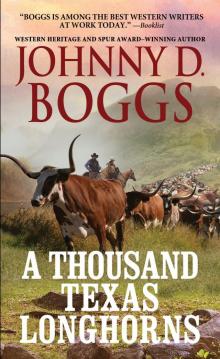 A Thousand Texas Longhorns
A Thousand Texas Longhorns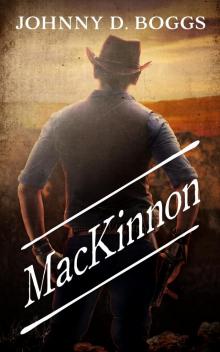 MacKinnon
MacKinnon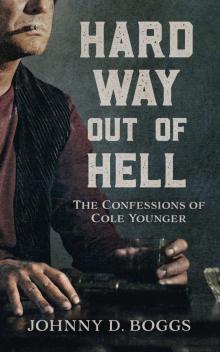 Hard Way Out of Hell
Hard Way Out of Hell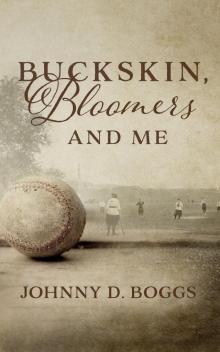 Buckskin, Bloomers, and Me
Buckskin, Bloomers, and Me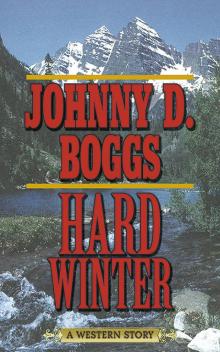 Hard Winter
Hard Winter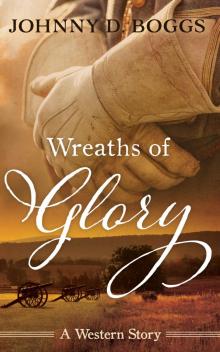 Wreaths of Glory
Wreaths of Glory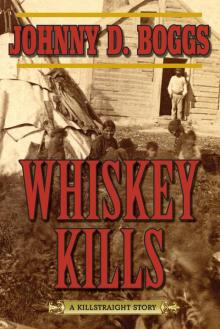 Whiskey Kills
Whiskey Kills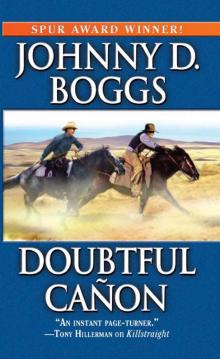 Doubtful Canon
Doubtful Canon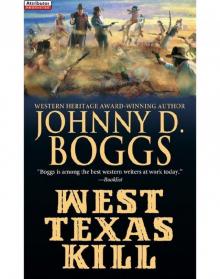 West Texas Kill
West Texas Kill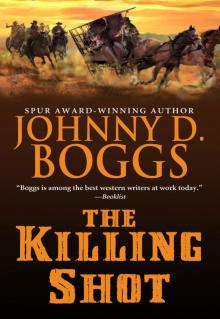 The Killing Shot
The Killing Shot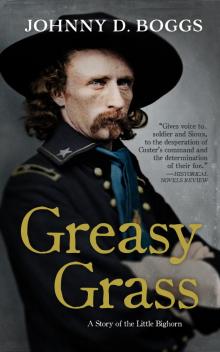 Greasy Grass
Greasy Grass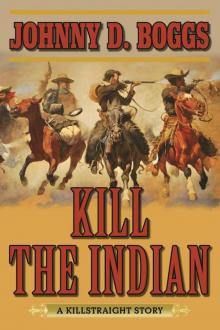 Kill the Indian
Kill the Indian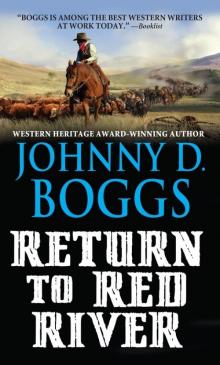 Return to Red River
Return to Red River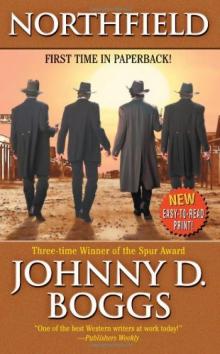 Northfield
Northfield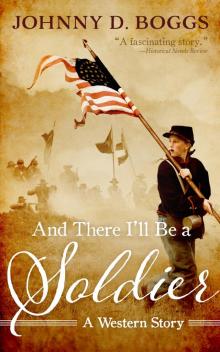 And There I’ll Be a Soldier
And There I’ll Be a Soldier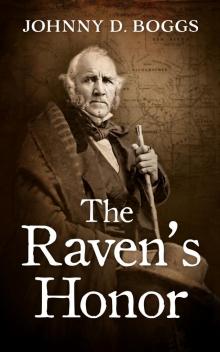 The Raven's Honor
The Raven's Honor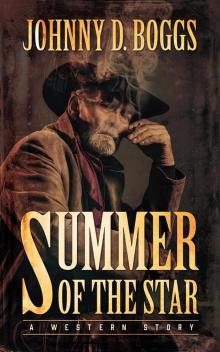 Summer of the Star
Summer of the Star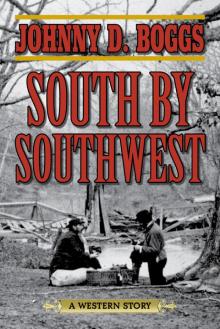 South by Southwest
South by Southwest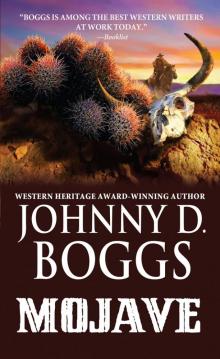 Mojave
Mojave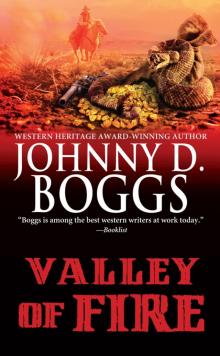 Valley of Fire
Valley of Fire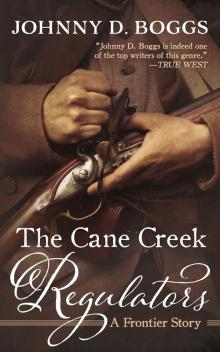 The Cane Creek Regulators
The Cane Creek Regulators